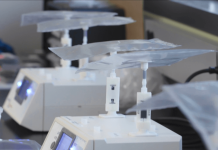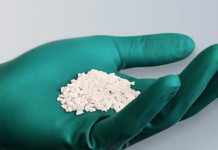US-based DermaSensor has announced a newly published study showing that its AI-powered device can improve a primary care physician’s ability to assess moles of concern.
In the prospective study, published in the Journal of the American Board of Family Medicine, three primary care providers used the DermaSensor device to assess 178 skin lesions from 155 patients, comparing its performance to biopsies or a panel of remote dermatologists.
Related: RenovoRx continues drug-device combo Phase III trial in pancreatic cancer
The DermaSensor showed a sensitivity of 90% and a specificity of 60.7%. That is compared to the clinician’s standard of care which had a 40% sensitivity and specificity of 84.8%. The device also achieved a high negative predictive value (NPV) of 98.9%.
DermaSensor’s device is a spectroscopy-based objective tool to help clinicians evaluate suspected lesions for some of the most common forms of skin cancer, including basal cell carcinoma, squamous cell carcinoma and melanoma.
The device secured US Food and Drug Administration (FDA) clearance in January 2024, supported by data from a pivotal study that enrolled more than 1,000 patients and was led by the Mayo Clinic across 22 study centres. Data from the study demonstrated a 96% sensitivity rate for the device across all 224 skin cancers identified.
A sub-analysis of the study highlighted that the DermaSensor device effectively detects skin cancer across different skin tones. Dividing more than 1,000 patients by Fitzpatrick skin type, the device showed minimal variation in performance, with a sensitivity of 96% in lighter-pigmented skin and 92% in darker-pigmented skin.
DermaSensor’s chief medical officer Gary Slatko said: “This study further shows that DermaSensor represents a significant step forward in achieving our goal of making a meaningful difference in the fight against skin cancer. We designed the device to equip healthcare providers with a tool that helps quickly assess suspicious skin lesions so patients can get the best possible care.”
DermaSensor isn’t the only AI-based skin cancer detection device on the market. UK-based Skin Analytics’ DERM device captures dermoscopic images of skin lesions, which are then analysed by a deep learning algorithm that continuously improves its diagnostic accuracy through repeated analytical tasks.




